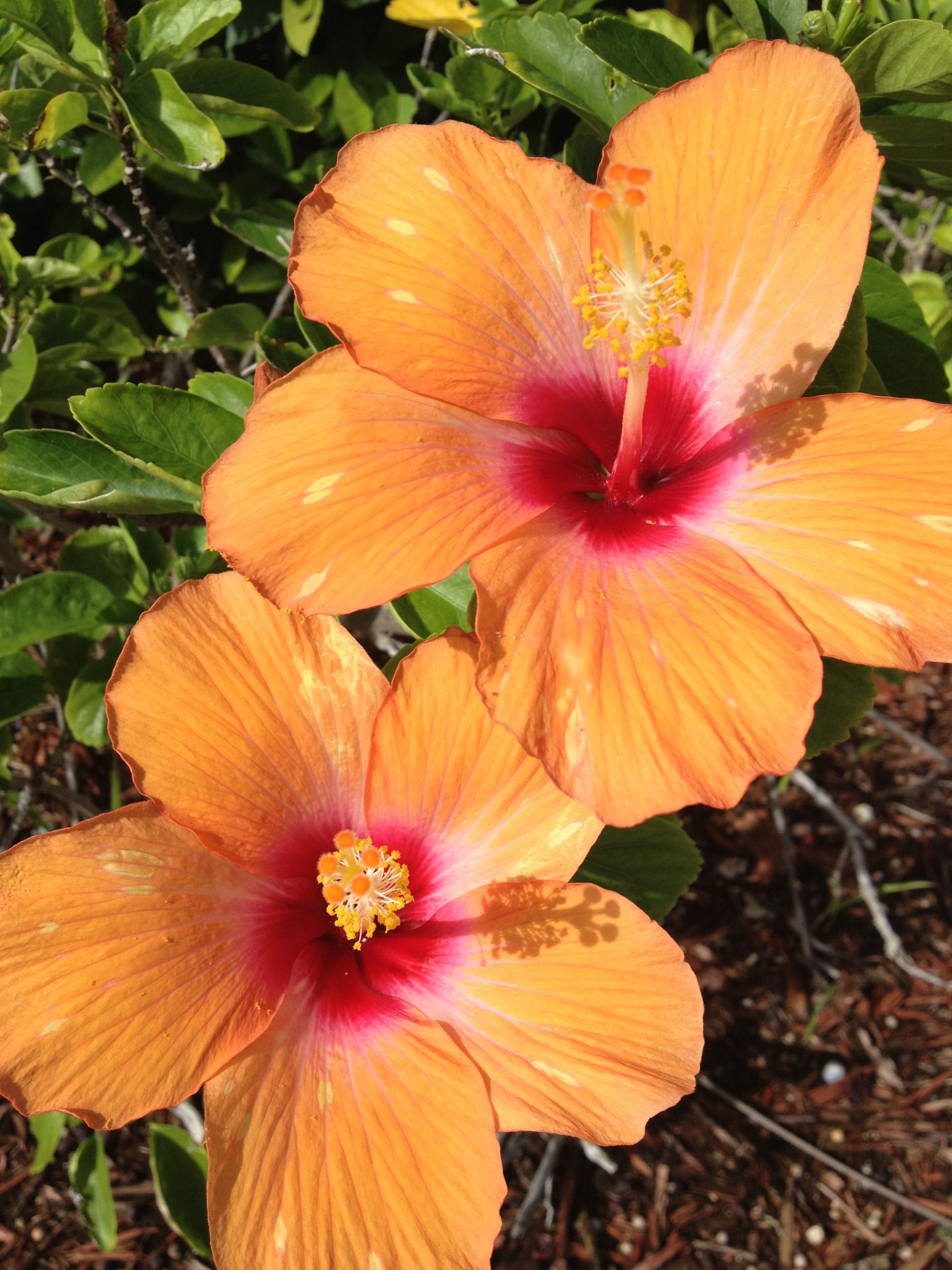Unleash tropical vibrancy in your garden with the fiery hues of orange hibiscus! From the bold ‘Electric Orange’ to the delicate ‘Apricot Brandy,’ these sun-loving stunners offer a symphony of color and effortless elegance. This comprehensive guide will equip you with everything you need to know about orange hibiscus varieties, expert care tips, and creative landscaping ideas. Let’s dive in and ignite your garden with the captivating charm of orange hibiscus!
Exploring the Spectrum of Orange Hibiscus
Orange hibiscus cultivars offer a breathtaking array of shades, from the softest apricot to the most vivid tangerine. Imagine ‘Apricot Brandy’ with its delicate, almost pastel orange, perfect for a romantic cottage garden. Then picture ‘Electric Orange,’ a bold showstopper that demands attention. And for something truly unique, consider the ‘Orange Lion’s Tail’ with its fringed, tassel-like blooms. The possibilities are endless, and new hybrids are constantly being developed!
Here’s a glimpse into the diversity of orange hibiscus:
| Cultivar Name | Botanical Name | Sun Requirements | Notable Features |
|---|---|---|---|
| Apricot Brandy | Hibiscus rosa-sinensis ‘Apricot Brandy’ | Full to Part Sun | Delicate apricot-orange hue |
| Cheri | Hibiscus rosa-sinensis ‘Cheri’ | Full to Part Sun | Profuse bloomer |
| Electric Orange | Hibiscus x ‘Electric Orange’ | Full Sun | Vibrant, true orange color |
| Fiesta | Hibiscus rosa-sinensis ‘Fiesta’ | Full Sun | Can reach 8 feet tall |
| High Definition | Hibiscus rosa-sinensis ‘High Definition’ | Full Sun | Large, overlapping petals |
| Magic Moments | Hibiscus rosa-sinensis ‘Magic Moments’ | Full Sun | Cajun series cultivar, compact growth |
| Orange Lion’s Tail | Hibiscus rosa-sinensis ‘Orange Lion’s Tail’ | Full Sun | Unique, fringed “Lion’s Tail” bloom structure |
| Orange Seduction | Hibiscus rosa-sinensis ‘Orange Seduction’ | Full Sun | Compact and colorful |
| Orange Sunset Wind | Hibiscus rosa-sinensis ‘Orange Sunset Wind’ | Full Sun | Vigorous grower |
| Pumpkin Pie | Hibiscus rosa-sinensis ‘Pumpkin Pie’ | Full Sun | Distinctive hybrid |
Mastering Orange Hibiscus Care
While these tropical beauties may seem exotic, caring for them is surprisingly simple. Think sunshine, well-drained soil, and consistent watering – just like a relaxing tropical vacation for your plants!
- Sunlight: Orange hibiscus thrives in full sun, ideally 6-8 hours per day.
- Soil: Well-draining soil is crucial to prevent root rot. A mix of potting soil, peat moss, and perlite is ideal.
- Watering: Water regularly, keeping the soil consistently moist but not soggy. Allow the soil to dry slightly between waterings.
- Fertilizing: Feed monthly during the growing season (spring and summer) with a balanced fertilizer to promote vibrant blooms.
- Pruning: Prune regularly to maintain shape, encourage bushier growth, and stimulate more flowering. Prune lightly after blooming in the fall or early spring.
- Pests & Diseases: Be vigilant for common pests like aphids, whiteflies, and spider mites. Regular monitoring and prompt treatment are key. Consider organic options like neem oil or insecticidal soap.
Designing with Orange Hibiscus: Landscaping Ideas
Orange hibiscus offers incredible versatility in landscaping. Imagine a vibrant hedge of ‘Tangerine Dream’ lining your driveway, or a single ‘Sunset Orange’ as a focal point in a mixed flower bed. These striking plants can also define borders, add structure, and create a tropical oasis, attracting pollinators like butterflies and hummingbirds. Planting them near a patio or seating area allows you to fully enjoy their beauty.
Beyond Beauty: Culinary & Cultural Significance
Orange hibiscus offers more than just visual appeal. The petals have a slightly tart, cranberry-like flavor, making them a delightful addition to teas, salads, and desserts. Imagine a refreshing hibiscus iced tea on a hot summer day, or a colorful hibiscus garnish on a tropical fruit salad.
Hibiscus holds cultural significance in many societies, symbolizing beauty, love, and even royalty. In Hawaii, the hibiscus is the state flower, often worn as a symbol of welcome and hospitality. Orange varieties are particularly associated with joy, warmth, and positive energy.
Decoding Orange Hibiscus Names
While the scientific name is Hibiscus rosa-sinensis, most gardeners simply refer to them as “orange hibiscus.” The terms “Chinese hibiscus” and “Rose of Sharon” are sometimes used, but these aren’t always specific to orange varieties. Within the orange hibiscus family, numerous cultivars exist, each with its unique characteristics.
Is Orange Hibiscus a Perennial?
The perennial status of orange hibiscus depends on the variety and your climate. Some tropical varieties act as annuals in colder regions, thriving in the summer but succumbing to winter frost. Hardy perennials, however, can withstand colder temperatures and return year after year in USDA plant hardiness zones 4-9. Always check the specific needs of the variety you choose.
The Quest for the Rarest Hibiscus: The Elusive Blue
While orange hibiscus abounds, true blue hibiscus remains a botanical unicorn. Hibiscus plants lack the genetic ability to produce true blue pigment. Varieties described as “blue” are usually deep purples with cool undertones that can appear blue under certain lighting. Dedicated breeders continue to explore ways to create a true blue hibiscus, but for now, it remains a fascinating example of the complexities of plant genetics.
Embracing the Allure of Orange Hibiscus
From its diverse varieties to its simple care requirements and versatile uses, orange hibiscus offers something for everyone. Adding these sunny blossoms to your garden will bring a touch of tropical warmth, vibrant beauty, and lasting joy. So, embark on your own hibiscus journey and discover the magic for yourself!
- Borosilicate Glass Food Storage for Freshness and Organization - January 31, 2026
- Borosilicate Food Containers for Durable and Safe Everyday Use - January 30, 2026
- Borosilicate Glass Meal Prep Containers Offer Durable Oven-Safe Storage - January 29, 2026










